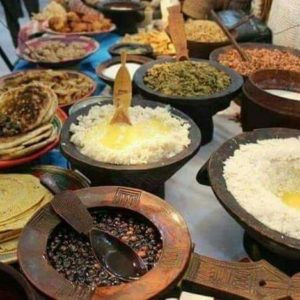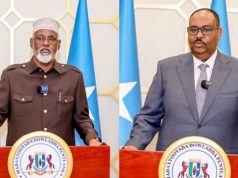
In Somaliland, judges and civil society have never had the opportunity to sit down and discuss how to improve justice provision for all citizens. But in September 2018, these two groups sat down together in a participatory workshop funded by the Knowledge Platform Security and Rule of Law, to discuss obstacles – and potential solutions – to fair and accessible justice for all. This is just one of many encouraging signs for justice provision in Somaliland but will need to be built upon to deliver on ambitious plans to improve access to justice for all.
Over the past few years, Chief Justice Adam Haji-Ali Ahmed has made some impressive strides in his efforts to improve access to justice in Somaliland. During his tenure, new courts have opened in 12 districts, which previously had none, a series of new mobile supreme and lower courts have helped bring the judiciary to some of the remotest locations in Somaliland, and efforts have been made to improve hiring practises to promote equality in the judicial sector. Yet, for all the positive steps, there is still a long way to go before all of Somaliland’s citizens have fair and affordable access to justice.
Somaliland is by no means unique in this standing. An oft quoted figure from 2008 – that is in need of updating – indicated that 4 billion out of the world’s 6 billion (and counting) citizens live without fair and readily available access to justice. However, over the past couple of years, there is a growing international movement, spurred on by the inclusion of justice as a priority within the 2030 Agenda for Sustainable Development, to address these serious access to justice shortcomings around the world. The Global Taskforce on Justice – a group of governments, organisations and networks committed to achieving access to justice for all – are leading this charge.
In Somaliland, evidence of this movement is beginning to emerge, with a number of active civil society organisations making the case to the government to recognize the links between access to justice and eradicating extreme poverty. Early efforts by these civil society groups to localise the Sustainable Development Goals (SDGs) with the government in Somaliland, including the support to help incorporate many SDG16 targets in the new Somaliland National Development Plan, together with the recent identification of access to justice as a short-term priority action for civil society across Somaliland, show that there is interest in taking forward action in this field.
It was against this backdrop that the Somaliland Human Rights Centre, together with Saferworld (two of the 6 founding members of the Somaliland SDG16+ Coalition), co-organised a three-day participatory workshop with the Ministry of Justice and the Office of the Chief Justice, to discuss new approaches for improving access to justice in Somaliland, funded by the Knowledge Platform Security & Rule of Law’s Knowledge Management Fund





